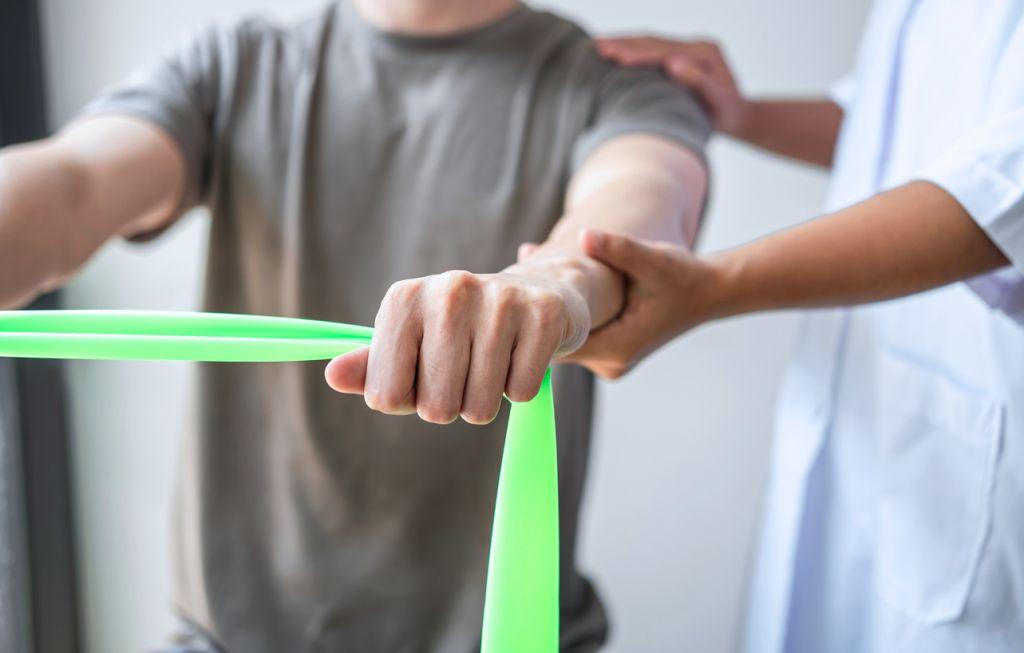If you’re like most people, you probably have a few aches and pains that you would love to go away. You may have tried medication, but it doesn’t seem to be working as well as you hoped. You’ve heard that physical therapy might help, but you’re not sure if it’s right for you. In this blog post, we will explore the truth about physical therapy: does it really work?
Contents
Does Physical Therapy Make A Difference?

Physical therapy holds great importance in the field of medicine. It is effective in treating a wide range of injuries and conditions and can help improve the quality of life for patients of all ages. But does physical therapy really work?
The answer to this question depends on a number of factors. In general, physical therapy can be an extremely effective form of treatment. However, the extent to which it is effective often depends on the specific condition being treated, the severity of the condition, and the individual patient’s response to treatment.
There are a wide variety of conditions that can be effectively treated with physical therapy. These include but are not limited to:
- Arthritis
- Chronic pain
- Injuries (e.g., sports injuries, workplace injuries)
- Neurological conditions (e.g., stroke, Parkinson’s disease)
- Rehabilitation after surgery
For each of these conditions, physical therapy can play an important role in improving the patient’s symptoms and quality of life. However, it is important to keep in mind that physical therapy is not a “cure” for these conditions. In many cases, it can help to improve symptoms and functionality, but it cannot completely eliminate the condition.
The effectiveness of physical therapy also depends on the severity of the condition. For example, patients with mild arthritis may see significant improvements with physical therapy, while patients with more severe arthritis may only see modest improvements.
Finally, the individual patient’s response to treatment must be taken into account. Some patients may respond very well to physical therapy, while others may not see as much benefit. There is no way to predict how an individual patient will respond to treatment.
Is Physical Therapy Better Than Medication?
 There is no easy answer to this question. It depends on the individual case and what the person is hoping to achieve with physical therapy. In some cases, physical therapy may be more effective than medication in reducing pain and improving function. In other cases, medication may be more effective. There is no definitive answer that applies to everyone.
There is no easy answer to this question. It depends on the individual case and what the person is hoping to achieve with physical therapy. In some cases, physical therapy may be more effective than medication in reducing pain and improving function. In other cases, medication may be more effective. There is no definitive answer that applies to everyone.
The feeling of nausea, drowsiness, constipation, diarrhoea, headache and dizziness are some of the common side effects of the medicine. Reasons, why physical therapy is preferred over medication, are:
1. There are fewer side effects associated with physical therapy.
2. Physical therapy is often more effective in the long term than medication.
3. Medication only treats the symptoms, while physical therapy can treat the underlying cause of the problem.
4. Physical therapy can help to prevent further injury by correcting the underlying problem.
5. Physical therapy can help to improve overall health and fitness, whereas medication only treats the specific problem.
It is important to speak to a doctor or physical therapist to determine which approach is best for each individual case.
Does Physical Therapy Work For Nerve Damage?
The short answer is: yes, physical therapy can work for nerve damage. However, the long answer is a bit more complicated. Depending on the severity of the nerve damage, physical therapy may or may not be the most effective treatment option available.
For example, if you have suffered a minor injury that has caused some mild nerve damage, physical therapy may be able to help you recover. However, if you have suffered a more serious injury that has resulted in significant nerve damage, physical therapy may not be able to completely heal the damage. In this case, other treatment options, such as surgery, may be necessary.
No matter what the severity of your nerve damage is, it is important to consult with a doctor or other medical professional before beginning any physical therapy regimen. This way, you can ensure that physical therapy is the best treatment option for you and that you are doing everything possible to maximize your chances of recovery.
How Do You Know If Physical Therapy Is Not Working?
If your symptoms aren’t improving after several weeks of physical therapy, it may be time to explore other options. Here are some signs that PT isn’t working:
1. You’re in pain most of the time.
2. Your pain is getting worse.
3. You’re not able to do your normal activities.
4. You’re not able to sleep well.
5. You’re not able to work.
6. You’re not able to enjoy your life.
If you’re experiencing any of these problems, talk to your doctor about other options for treatment.
How Fast Does Physical Therapy work?
 The typical person undergoing physical therapy for an injury can expect a quick and significant reduction in pain within the first few weeks of treatment. For more chronic conditions, it may take longer to see results, but generally, most people will notice some improvement within six to eight weeks.
The typical person undergoing physical therapy for an injury can expect a quick and significant reduction in pain within the first few weeks of treatment. For more chronic conditions, it may take longer to see results, but generally, most people will notice some improvement within six to eight weeks.
The best way to ensure that physical therapy is effective is to be an active participant in your own care. This means attending all of your scheduled appointments, doing the exercises and stretches that your therapist prescribes, and following their recommendations for at-home care.
Don’t give up on physical therapy if you don’t see results immediately. It may take some time and dedication, but ultimately, it is an effective way to relieve pain and improve function.
Conclusion?
In conclusion, physical therapy can be an effective form of treatment for a wide variety of conditions. However, the extent to which it is effective often depends on the specific condition being treated, the severity of the condition, and the individual patient’s response to treatment. If you are considering physical therapy for yourself or a loved one, be sure to discuss the potential risks and benefits with a licensed healthcare provider.
Physical Therapy help patients recover from pain. If you’re experiencing Back pain, Shoulder pain, Knee pain, Neck pain, Elbow pain, Hip pain, or Arthritis pain, a physical therapist at MantraCare can help: Book a physiotherapy session.


